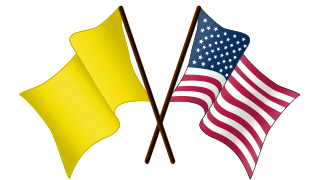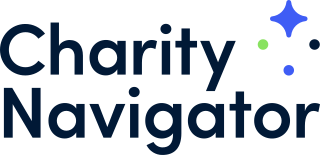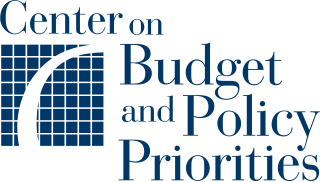Related Research Articles

The Office of Management and Budget (OMB) is the largest office within the Executive Office of the President of the United States (EOP). OMB's most prominent function is to produce the president's budget, but it also examines agency programs, policies, and procedures to see whether they comply with the president's policies and coordinates inter-agency policy initiatives.
A chief financial officer (CFO), also known as, is an officer of a company or organization who is assigned the primary responsibility for making decisions for the company for projects and its finances . The CFO thus has ultimate authority over the finance unit and is the chief financial spokesperson for the organization.

The Center for American Progress (CAP) is a public policy research and advocacy organization which presents a liberal viewpoint on economic and social issues. It has its headquarters in Washington, D.C.

The Reason Foundation is an American libertarian think tank that was founded in 1978. The foundation publishes the magazine Reason. Based in Los Angeles, California, it is a nonprofit, tax-exempt organization. According to its website, the foundation is committed to advancing "the values of individual freedom and choice, limited government, and market-friendly policies." In the 2014 Global Go To Think Tank Index Report, the foundation was number 41 in the "Top Think Tanks in the United States".
The Tax Foundation is an international research think tank based in Washington, D.C. that collects data and publishes research studies on U.S. tax policies at both the federal and state levels. Its stated mission is to "improve lives through tax policy research and education that leads to greater economic growth and opportunity".
Pioneer Institute is a free-market think tank based in Boston, Massachusetts. The organization was founded in 1988 by Lovett C. Peters. Pioneer's stated mission is "to develop and communicate dynamic ideas that advance prosperity and a vibrant civic life in Massachusetts and beyond."
CharityWatch, known until 2012 as the American Institute of Philanthropy, is a 501(c)(3) nonprofit organization in Chicago, created in the United States by Daniel Borochoff in 1992, to provide information about charities' financial efficiency, accountability, governance, and fundraising.

Charity Navigator is a charity assessment organization that evaluates hundreds of thousands of charitable organizations based in the United States, operating as a free 501(c)(3) organization. It provides insights into a nonprofit's financial stability, adherence to best practices for both accountability and transparency, and results reporting. It is the largest and most-utilized evaluator of charities in the United States. It does not accept any advertising or donations from the organizations it evaluates.
The Mercatus Center is an American libertarian, free-market-oriented non-profit think tank. The Mercatus Center is located at the George Mason University campus, but it is privately funded and its employees are independent of the university. It is directed by Benjamin Klutsey and its board is chaired by American economist Tyler Cowen. The Center works with policy experts, lobbyists, and government officials to connect academic learning with real-world practice. Taking its name from the Latin word for market, the center advocates free-market approaches to public policy. During the George W. Bush administration's campaign to reduce government regulation, The Wall Street Journal reported, "14 of the 23 rules the White House chose for its 'hit list' to eliminate or modify were Mercatus entries".
The Population Research Institute (PRI) is a 501(c)3 non-profit organization and advocacy group based in Front Royal, Virginia, US. The organization opposes abortion. They believe that overpopulation is a myth and oppose hormonal birth control in females and vasectomies in males.
Feed the Children, established in 1979 and headquartered in Oklahoma City, Oklahoma, is a non-profit organization focused on alleviating childhood hunger. Its mission is "providing hope and resources for those without life's essentials." The organization provides food, essentials, education supplies and disaster relief to those in need across the United States and in eight countries around the world. Domestically, Feed the Children operates five distribution centers located in Oklahoma, Indiana, California, Tennessee and Pennsylvania.

The Center on Budget and Policy Priorities (CBPP) is a progressive American think tank that analyzes the impact of federal and state government budget policies. A 501(c)(3) nonprofit organization, the Center's stated mission is to "conduct research and analysis to help shape public debates over proposed budget and tax policies and to help ensure that policymakers consider the needs of low-income families and individuals in these debates."

The Office of the Parliamentary Budget Officer is an office of the Parliament of Canada which provides independent, authoritative and non-partisan financial and economic analysis. The office is led by the Parliamentary Budget Officer, an independent officer who supports parliamentarians in carrying out their constitutional roles of scrutinizing the raising and spending of public monies and generally overseeing the government's activities.
The Committee for a Responsible Federal Budget (CRFB) is a non-profit public policy organization based in Washington, D.C. that addresses federal budget and fiscal issues. It was founded in 1981 by former United States Representative Robert Giaimo (D-CT) and United States Senator Henry Bellmon (R-OK), and its board of directors includes past heads of the House and Senate Budget Committees, the Congressional Budget Office, the Office of Management and Budget, and the Government Accountability Office.

The Digital Accountability and Transparency Act of 2013 aims to make information on federal expenditures more easily available, accessible, and transparent. The bill would change reporting requirements about financial data and start a pilot program to research best practices. The bill was introduced in the House during the 113th United States Congress.

The FOIA Oversight and Implementation Act of 2014 is a bill that would amend the Freedom of Information Act in order to make it easier and faster to request and receive information. The bill would require the Office of Management and Budget to create a single FOIA website for people to use to make FOIA requests and check on the status of their request. The bill would also create a Chief FOIA Officers Council charged with reviewing compliance and recommending improvements. This bill would also require the federal agency to release the information it disclosed to the person who requested it publicly afterwards.

The Federal Information Technology Acquisition Reform Act made changes to the ways the U.S. federal government buys and manages computer technology. It became law as a part of the National Defense Authorization Act for Fiscal Year 2015 (Title VIII, Subtitle D, H.R. 3979.
The Josiah Bartlett Center for Public Policy (JBCPP) is a New Hampshire-based free market think tank.
Charity assessment is the process of analysis of the goodness of a non-profit organization in financial terms. Historically, charity evaluators have focused on the question of how much of contributed funds are used for the purpose(s) claimed by the charity, while more recently some evaluators have placed an emphasis on the cost effectiveness of charities.
Charity Intelligence Canada is a Toronto-based nonprofit organization which posts assessments of the finances and impacts of Canadian charities on its website. Founded in 2007 by former equity analyst Kate Bahen, using unconventional methodologies drawn from Bahen’s stock market background.
References
- ↑ Hess, Hannah (March 14, 2016). "Think tank focused on government transparency is closing". Environment & Energy News. Retrieved 14 June 2016.
- ↑ "Center for Effective Government Closes Doors". Philanthropy News Digest. March 21, 2016. Retrieved 14 June 2016.
- ↑ Schuman, Daniel (16 December 2024). "Open-Government Nonprofits Are Dying Off Just When They're Needed Most". The Bulwark .
- ↑ Center for Effective Government - About Us
- ↑ Charity Navigator Rating - Center for Effective Government
- ↑ Josh Gerstein Group gives State Department 'F' on FOIA processing 10 March 2015
- 1 2 Wendy Feliz Challenging CBP’s Failure to Respond to FOIA Requests Immigration Impact, 16 March 2015
- ↑ David Dayen How the Government Is Rolling Over for Big Banks Again. The Fiscal Times, 28 August 2015
- ↑ Chris Isidore Uncle Sam's outsourcing tab: $517 billion CNNMoney 10 June 2013
- ↑ Testimony Archived March 13, 2016, at the Wayback Machine 2004-2015, Center for Effective Government, retrieved 21 March 2016